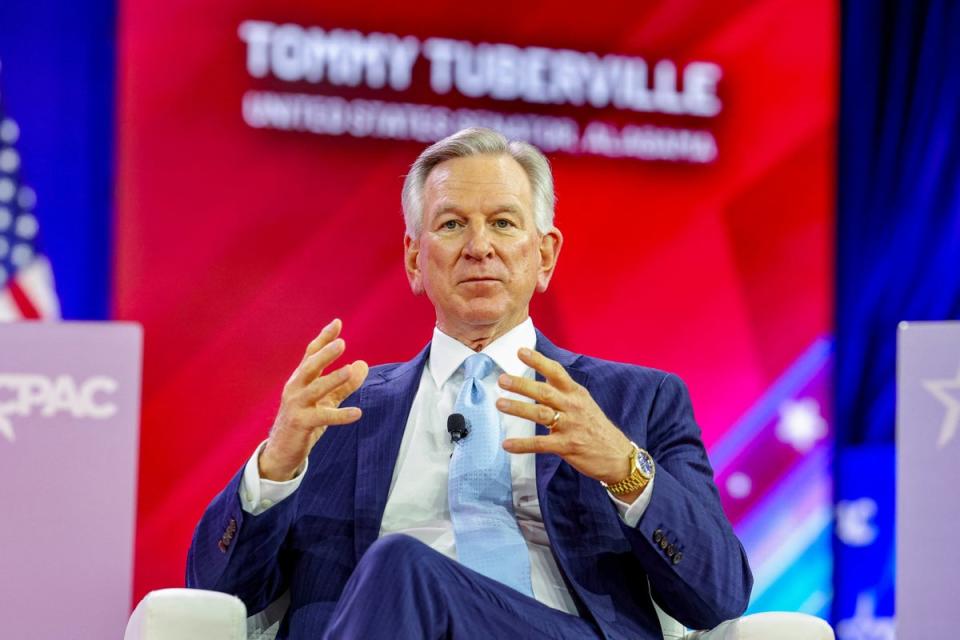Lindsey Graham compares fellow Republican Tommy Tuberville to Nazi appeasers of the 1930s
Senator Lindsey Graham made the comparison between members of his own party who oppose further military aid to Ukraine and the European leaders of the 1930s who pursued a policy of appeasement with Adolf Hitler on Sunday.
Graham was speaking on CBS’s Face the Nation when he made the remark, which was likely to rile up far-right members of his party in the House and Senate who voted against that assistance when it passed both chambers in the national security supplemental legislation passed in April. The bill was not likely to be the last package of assistance to Ukraine to come before Congress, and such legislation is currently relying on a fragile alliance of Democrats and neoconservative Republicans in both chambers.
“These are the most dangerous times since the ‘30s. Don’t make the mistakes of the ‘30s,” Graham said on Sunday. He used the same comparison to describe the question of further military aid to Israel in its effort to fully eradicate Hamas. Israel is facing international condemnation for the scope of its military assault on Gaza and the scale of the civilian death toll there.
“Pull the plug on [aid to] Israel? That didn’t work in World War II, it’s not going to work now,” he said.
While Graham’s argument was impassioned, there’s little reason to think that aid to Ukraine would continue with such frequency, if at all, under a Republican administration in 2025.
Donald Trump’s most vocal allies in the GOP congressional caucuses, such as Tuberville and JD Vance in the Senate and Marjorie Taylor Greene in the House, are also the biggest opponents of further aid to Ukraine. While the ex-president has not said one way or the other whether aid would continue under a Trump second term, the ex-president would face little pressure from the MAGA-aligned sectors of Congress to take action.
President Joe Biden continues to tout his stewardship of the US reponse to the invasion of Ukraine, given his base’s support for a US-backed defence of the eastern European country. The incumbent president’s policy of arms and munition transfers has also been supported by top brass including General Mark Milley, former chairman of the Joint Chiefs.
"If Ukraine loses and Putin wins, I think you would be certainly increasing, if not doubling, your defense budget in the years ahead,” Milley, now retired, told CBS in 2023.

"And you will increase the probability of a great power war in the next 10 to 15 years,” he continued. “I think it would be a very dangerous situation" if the Russian leader's invading forces were ‘allowed to win’.”
Trump himself was notable for his friendly demeanor towards Russia’s Vladimir Putin, who is accused of organising the assassination of his political enemies, during his time in the White House. At one famous 2018 press conference alongside the Russian president in Helsinki, he questioned the assessment of the US intelligence community on Russian election interference efforts while lavishing praise on his Russian counterpart.

 Yahoo News
Yahoo News 
